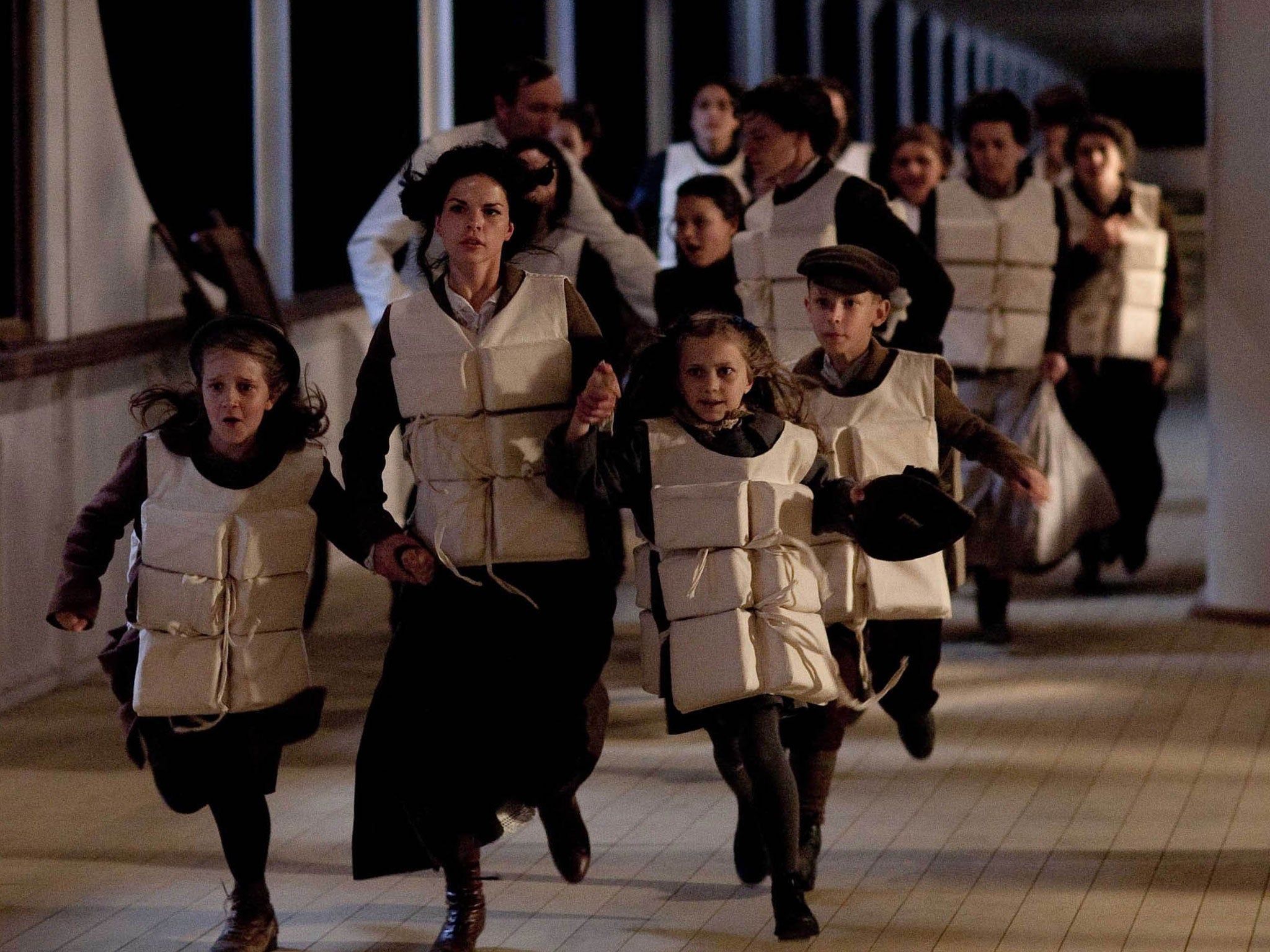No smoke without fire – unless you are talking about a traditional saying...
The discovery of gold particles in eucalyptus leaves has discredited the idea that money doesn’t grow on trees. But what other received wisdom doesn’t stand up to scrutiny?

Your support helps us to tell the story
From reproductive rights to climate change to Big Tech, The Independent is on the ground when the story is developing. Whether it's investigating the financials of Elon Musk's pro-Trump PAC or producing our latest documentary, 'The A Word', which shines a light on the American women fighting for reproductive rights, we know how important it is to parse out the facts from the messaging.
At such a critical moment in US history, we need reporters on the ground. Your donation allows us to keep sending journalists to speak to both sides of the story.
The Independent is trusted by Americans across the entire political spectrum. And unlike many other quality news outlets, we choose not to lock Americans out of our reporting and analysis with paywalls. We believe quality journalism should be available to everyone, paid for by those who can afford it.
Your support makes all the difference.The discovery of gold particles in eucalyptus leaves has discredited the idea that money doesn’t grow on trees. What other received wisdom doesn’t stand up to scrutiny?
Bread always falls buttered-side down
The sentiment is that if something unlucky can happen, it will. It also known as “Murphy’s law”, supposedly named after an American aerospace engineer in the 1940s who managed to put everything back to front in something he was fixing. Most people know it more simply as “sod’s law”.
There has been a long and surprisingly detailed analysis of this law, focusing on buttered toast and whether it does indeed always fall buttered-side down. Of course it doesn’t, but there does seem to be at least a grain of truth in the notion based on the height of the average kitchen table.
Earlier this year, Professor Chris Smith of Manchester Metropolitan University dropped 100 slices of toast from a table 30in (76cm) high and found that in 81 per cent of the cases, they fell buttered-side down. “Our research shows that Sod’s Law really does exist when it comes to dropped toast,” Professor Smith said.
This latest empirical support for Murphy’s Law follows earlier work carried out by science writer Robert Matthews, a visiting fellow in mathematics at Aston University, who demonstrated that toast knocked off a standard-sized kitchen table will tend to fall buttered side down because at normal velocity it will usually rotate by one half-turn before hitting the floor.
He then went on to show mathematically that the same unlucky trend can be applied to Murphy’s law of odd socks – if they can be created they will – and Murphy’s law of maps – if the place you are seeking can lie in an awkward part of the map, it will do.
There’s one born every minute
The meaning behind this popular phrase is that there are many fools or suckers in the world. But can there really be one born every minute?
There are about 250 babies born every minute in the world on average, and a good proportion – maybe a majority – will grow up to do very foolish things. It would probably be more accurate to say that there’s one born every second.
A leopard can’t change its spots
The idea that someone cannot change a particularly unfavourable aspect of their personality is summed up by the idea that a leopard cannot change the spots on its coat even if it wanted.
Leopards, like many big predators, engage in camouflage so that they can creep up or take their prey by surprise. This is particularly true of forest-dwelling big cats that operate in low light conditions, with lots of dappled shade.
Rudyard Kipling had a point in his fable of how the leopard got his spots. “You can lie out on a leafy branch and look like sunshine sifting through the leaves; and you can lie right across the centre of a path and look like nothing in particular.”
While it is indeed true that an individual leopard cannot changes its spots, scientist believe that coat markings in the big cats are highly mutagenic, meaning that they can mutate or change rapidly during the course of evolution. The wide variety of coat marking in the big cats, from the striped tiger to the lion’s plain coat, is testament to the idea that leopards can indeed change their spots – over a long period of time.

A fish rots from the head down
This may refer to the corruption at the head of a party or state, but it has little basis in piscatorial fact. Every fisherman knows that a fish rots from its guts, which is why they are promptly removed.
Buses always come in threes
It’s one of those phrases that you instinctively believe. We all remember the times when we wait for what seems like hours for a bus to arrive and then they come in convoy.
The “clumping effect” is a well-known problem in mathematics. Buses start out evenly spaced from a bus station but small delays mean that more passengers build up to board the delayed bus which then takes longer to complete its route because of the extra boarding times involved.
Meanwhile, with a smaller gap growing with the bus behind, there are fewer passengers for the second bus to pick up, which only exacerbates the problem as it gathers ground on the first bus. The effect is passed down the chain until, eventually, two or three buses end up trailing the first one.
Mathematicians point out that it is passenger behaviour that really controls clumping of trains and buses. The answer seems to be to persuade passengers to catch the less-crowded bus or train following behind, they may not arrive any faster but at least they arrive a little less stressed.

Third time lucky
This has no basis in probability theory. Tossing a coin will give you a 50:50 chance of winning no matter how many times you toss it. The only way it might work is in a game of skill, not chance, where a couple of practice shots may help in the third go.
The darkest hour is just before dawn
Figuratively, the idea behind this proverb is that there is a moment of lowest ebb when all seems lost, and that it often occurs just before things get brighter. The earliest record of it comes from the English theologian and historian Thomas Fuller, writing in 1650: “It is always the darkest just before the Day dawneth.”
Scientifically it is nonsensical. The darkest part of the night, if you take clouds, stars and the Moon out of the equation, must be when the point where you are on Earth is facing directly away from the Sun, which means roughly half-way between sunset and sunrise.
This point in time varies depending on the time of year, but it will never be the darkest hour just before dawn unless there are exceptional circumstances, like a full moon that sets just before dawn.
Great minds think alike
Try telling that to Albert Einstein. His two theories of relativity came out of nowhere, with no other great mind of his day even close to him.

Women and children first
The first documented account of this seafaring command concerned the sinking of HMS Birkenhead off the coast of South Africa in 1852, which was carrying 480 British troops and about 26 women and children. The commander ordered the men to “stand fast” and allow the women and children onto the few lifeboats available. The women and children survived but almost all the men drowned.
This led to the “Birkenhead drill” of “women and children first” when a ship had to be abandoned at sea. But when scientists came to study 18 maritime disasters between 1852 and 2000, involving some 15,000 passengers from more than 30 nations, a very different picture emerged.
The survival rate of women on board these ships was more than half the rate of men, and children had the lowest survival rate of all.
One notable exception was the sinking of the Titanic in 1912 when about 70 per cent of the women and children survived compared to about 20 per cent of the men – although there were reports of officers using guns in the melee to uphold Captain Smith’s order to save women and children first.
So, apart from one or two noble exceptions, the general rule of the sea seems to be: “Every man for himself, and the devil take the hindmost.”

You are what you eat
Patently rubbish. We are creatures of nature, nurture and the complex interaction of nature and nurture, which goes by the name of epigenetics, or the interaction of genes and the environment. Food is a small part of the environmental influences that help to shape us.
Join our commenting forum
Join thought-provoking conversations, follow other Independent readers and see their replies
Comments